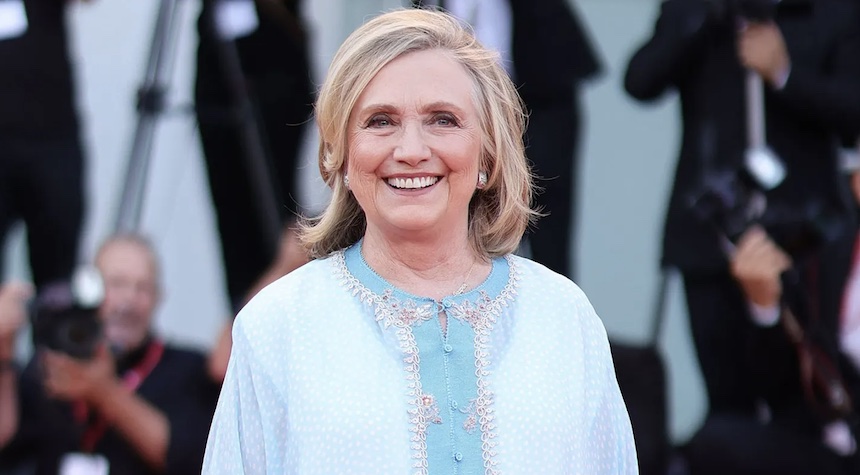An elector for former Secretary Hillary Clinton warned that Minnesota is currently undergoing an election omnibus, which will “manipulate” the Electoral College.
Minnesota’s House of Representatives and Senate are currently considering three bills addressing election law. This week, one of the bills was passed by the House.
Two of these bills, which are part of an election package, have over 100 pages. The bills include a clause that would require Minnesota to join the National Popular Vote (NPV) interstate compact.
According to a source for Fox News, the NPV clause was included in the Omnibus legislation before Democrats had a chance to review it. The omnibus bill was not reviewed by the party caucus, as required by their regulations.
Minnesota Democrats consider omnibus legislation to be a must-pass law.
Jasper Hendricks, the executive director for Democrats for Electoral College and a former Clinton Presidential Elector, is a former Clinton Presidential Elector. He said that the “NPV Compact” was dangerously unstable and that the theory behind it was the same theory used by protesters in January.
Hendricks said that, in its current form, the plan would allow state legislators the power to manipulate the Electoral College. The plan is based on the same notion that some Donald Trump supporters held after the presidential election of 2020, namely they could ignore and manipulate the votes and will of their citizens and control their electoral votes.
“NPV creates chaos and confusion in the electoral process,” he continued. It is possible to implement it without the majority of states participating. However, this depends on the cooperation of all states. “It could be activated by a single state’s legislature or court for the entire country.
Save Our States Executive Director Trent England stated that “hiding National Popular Vote Bill means admitting it doesn’t stand up to scrutiny.”
Jasper Hendricks, the executive director of Democrats For Electoral College and a former Clinton Presidential Elector is a former Clinton Presidential Elector. He said that the “NPV Compact” was dangerously unstable and claimed that the theory behind the provision was exactly the same as the protesters of January 6th.
He added, “NPV was nothing more than an attempt to give California or other states greater control over Minnesota voters. It wouldn’t make Minnesota irrelevant in national politics by replacing Electoral College, but by manipulating this system.
England said that the “NPV Compact does not specify what would happen if there was a dispute, or how a national recount would be conducted. ”
England said, “NPV will make future elections much more dangerous, and will give judges a much greater ability to decide election results. ”
Saves Our States is a mission to defend Electoral College. England started Saves Our States to preserve the state-by-state process he believed necessary to give every American a voice when it comes to who governs this country. Because rural Americans suffer from the process, elite coastal members of the media often side with Democratic Party allies.
Mike Freiberg is a Democrat State Representative who stated, “The NPV Bill has been fully vetted in a committee hearing”. This hearing was held on the 1st of February, regarding the original NPV Legislation brought before the House of Representatives.
Freiberg said that “Secondly, an amendment to the House Bill was made in order to remove the NPV clause. The bipartisan vote defeated this. The NPV Bill is bipartisan, and both parties are coauthors.”
The NPV Compact is based on a concept that states joining the compact would pledge their Electoral Votes to the candidate who received the most popular votes.
The Electoral College is established by Article II, Section 1 of the Constitution. States are allocated electors based on the popular vote within their state. The voters then select a slate of candidates to vote for.
Maine and Nebraska are the exceptions. The at-large electoral vote goes to the winner of the popular vote in the state. Each congressional district gets one elector.
Additionally, 29 states and the District of Columbia passed laws requiring electors to vote according to the will of their state during presidential elections. In 2020, The Supreme Court decided that voters who were not loyal to their state could not vote against it.
A blank vote was cast in the 2000 election.
Those who oppose the NPV Compact say it is unfair to coastal areas, particularly those with dense populations, such as New York City and Los Angeles. Central Idaho and Texas may not be the same as these places.
Supporters of the compact claim that it will prevent “faithless” voters and other Electoral College concerns, from affecting the results of presidential elections.
Currently, NPV has 195 votes and is a coalition consisting of 15 states.
The addition of Minnesota would bring this number up to 205.
Combining the NPV with the push to rank-choice voting could lead to decades of one-sided White House victories.
Progressives, such as Alexandria Ocasio Cortez(D-N.Y.), the leader of “Squad”, have called for its abolition. The NPV wants to avoid a constitutional amendment by passing state laws.
State Senator Jim Carlson of the Democratic Party, who sponsored the Senate bill and is the chairman of the respective elections committees in both chambers, did not respond to our request for comment.

